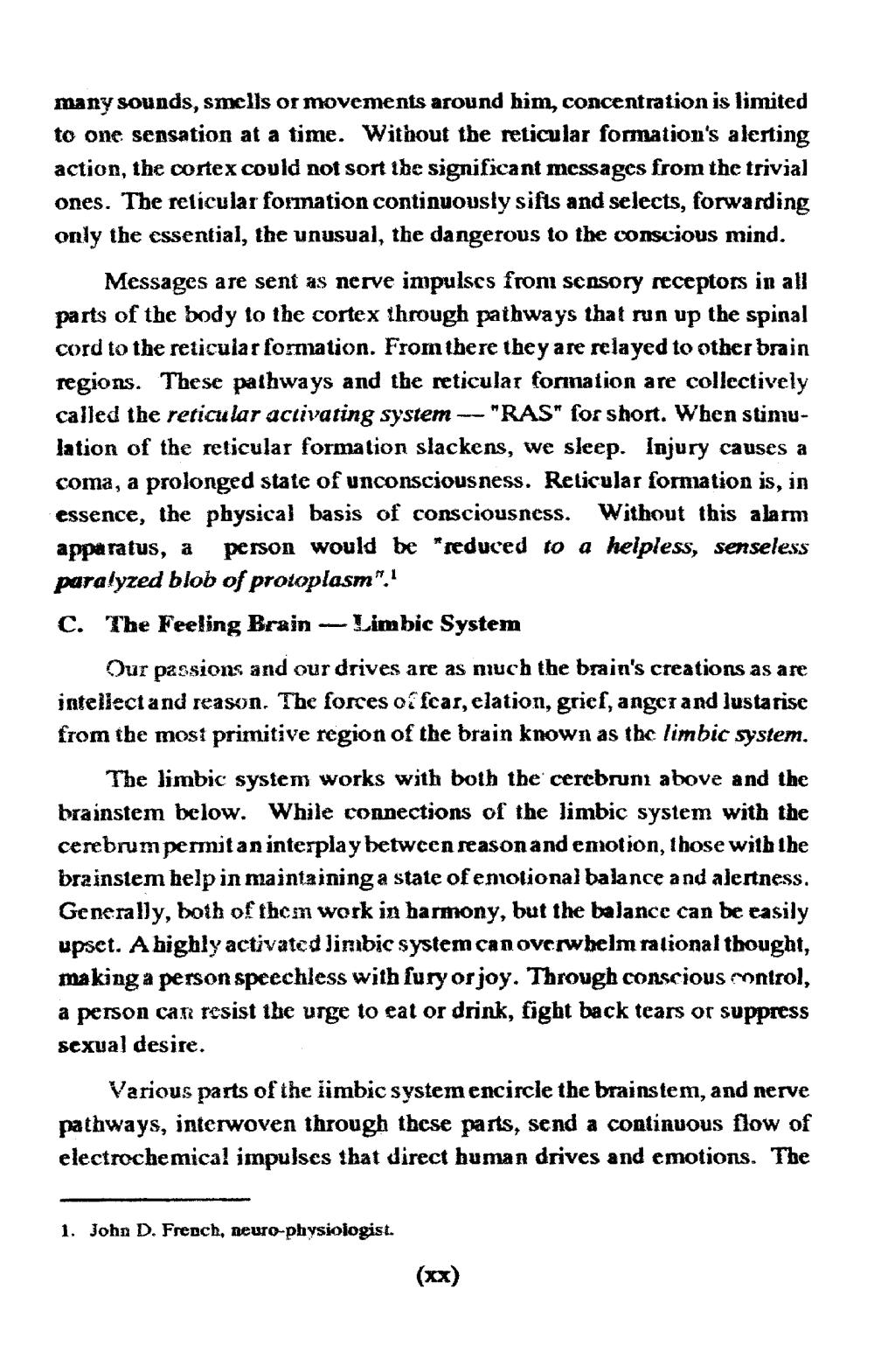________________
many sounds, smells or movements around him, concentration is limited to one sensation at a time. Without the reticular formation's alerting action, the cortex could not sort the significant messages from the trivial ones. The reticular formation continuously sifts and selects, forwarding only the essential, the unusual, the dangerous to the conscious mind.
Messages are sent as nerve impulses from scnsory receptors in all parts of the body to the cortex through pathways that run up the spinal cord to the reticular formation. From there they are relayed to other brain regions. These pathways and the reticular formation are collectively called the reticular activating system -- "RAS" for short. When stimulation of the reticular formation slackens, we sleep. Injury causes a coma, a prolonged state of unconsciousness. Reticular formation is, in essence, the physical basis of consciousness. Without this alarm apparatus, a person would be *reduced to a helpless, senseless paralyzed blob of protoplasm".1 C. The Feeling Brain - Limbic System
Our passions and our drives are as much the brain's creations as are intellect and reason. The forces oifcar, elation, grief, anger and lustarise from the most primitive region of the brain known as the limbic system.
The limbic system works with both the cerebrun above and the brainstem below. While connections of the limbic system with the cerebrum permitan interplay between reason and emotion, those with the brainstem helpin maintaining a state of emotional balance and alertness. Generally, both of thein work in barmony, but the balance can be easily upset. A bighly activated Jimbic system can overwhelm rational thought, making a person speechless with fury orjoy. Through conscious control, a person can resist the urge to eat or drink, fight back tears or suppress sexual desire.
Various parts of the limbic system encircle the brainstem, and nerve pathways, interwoven through these parts, send a continuous flow of electrochemical impulscs that direct human drives and emotions. The
1. John D. French, neuro-physiologist.
(XX)




